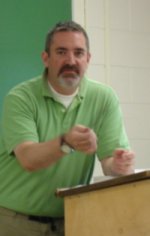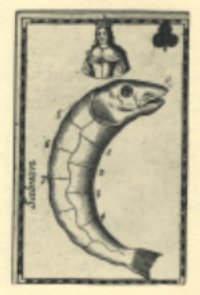We at UMR — faculty and students alike — enjoy several research opportunities.
Dr. Ed Malone (Assistant Professor of English and technical communication and Director of technical communication) and Tara Gosnell (graduate student in technical communication) have recently received a grant for a project titled "The Role of Historical Studies in Technical Communication Curricula." The grant comes from the Council of Programs in Technical and Scientific Communication, of which both Prof. Malone and Ms. Gosnell are members.
A research project such as this allows the student to hone research skills and participate as an investigator in the faculty member’s professional research. (The history of technical communication is a main emphasis of Dr. Malone’s research.)
Prof. Malone and Ms. Gosnell have been meeting once a week this summer to write, design, and
test an online survey of technical communication program administrators and faculty. They plan to administer the survey in early September. They plan to present the results of the survey in an article.
In an article that will soon appear in IEEE Transactions on Professional Communication, Prof. Malone notes that at least 200 historical studies have been published in the top five technical communication journals since 1990. These publications indicate an interest in and recognition of the value of historical research in technical communication. The research project will explore how academic programs in technical communication make use of the historical research.
Here are some examples of questions from the survey:
- In your opinion, should a technical communication program offer, on a
regular basis, a course devoted entirely to the history of technical
communication? - Are students in your program expected to apply their knowledge of the
history of technical communication? - If so, how are they expected to apply their knowledge?
- What is the value of historical studies to students of technical communication?
- In your opinion, what benefits (if any) does a technical communication
student derive from studying the history of technical communication?
The results of the survey will enable program administrators and faculty to make better-informed decisions about the role that historical studies should play in their curricula. The findings may also benefit technical communication scholars who are researching the history of technical communication by giving them feedback about the value of their research.
 On July 14, John Lemmerman and Laura Bettison were married at her parents’ St. James home. John is a Lecturer in English and Technical Communication. Laura is originally from St. Louis; now, she works and takes classes at Drury University in Rolla.
On July 14, John Lemmerman and Laura Bettison were married at her parents’ St. James home. John is a Lecturer in English and Technical Communication. Laura is originally from St. Louis; now, she works and takes classes at Drury University in Rolla. Do you feel overwhelmed when you have to do research and presents the results in a written or oral report?
Do you feel overwhelmed when you have to do research and presents the results in a written or oral report? The photo shows Dr. Trent Watts, Assistant Professor of English and Technical Communication, making a point in his summer school class. In this particular session, the class was discussing
The photo shows Dr. Trent Watts, Assistant Professor of English and Technical Communication, making a point in his summer school class. In this particular session, the class was discussing 